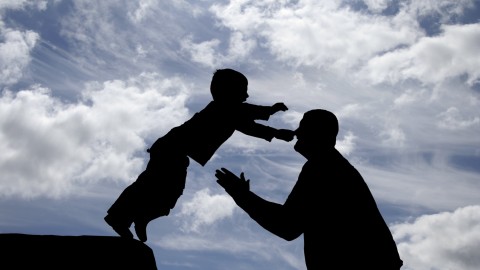When the spiritual teacher and his disciples began their evening meditation, the cat who lived in the monastery made such noise that it distracted them.
So the teacher ordered that the cat be tied up during the evening practice.
Years later, when the teacher died, the cat continued to be tied up during the meditation session.
And when the cat eventually died, another cat was brought to the monastery and tied up.
Centuries later, learned descendants of the spiritual teacher wrote scholarly treatises about the religious significance of tying up a cat for meditation practice.
Be Your Own Observer
This story is telling us how we act unconsciously. Not only unconsciously we act but when we put our energy where it is not required.
When spiritual teacher asked to tie up the cat his whole intention was to see that deciples can focus on the meditation. But how disciples took that was to put their energy in tying the cat. Their focus was not on meditation but on tying the cat.
How easily and fast we can distract ourselves. We get distracted because we are not aware of ourselves. Our mind is directing us instead of we directing the mind. We are used by the mind instead of we using the mind. We have become slaves of our mind. Our misery is nothing but our slavery. We have no freedom to act.
We are miserable because we have lost the capacity to think. We always try to follow without our own thinking. Just take example of this story if the disciple would have thought that the master wants us to focus on meditation, so he has asked to tie the cat then they would have been focusing on the Meditation. When spiritual teacher asked to tie the cat during the evening practice. Everyone’s mind was on the cat. Even while doing the meditation they were thinking of Cat.
When we act we need to analyse while doing our act where was our focus. If our focus is not on what we suppose to act then wake up, we are following the mind and mind is not following us. We have become slaves of mind.
Becoming the Observer is more than just thinking about yourself. It really is a different state of mind. Whether you are doing meditation, mindfulness practices, therapy, or other personal development work, becoming the observer is a critical skill to learn in order to make personal changes. Being the observer is more than noticing how you think about your self, and even your behaviors.
Being an observer of your self requires that you be aware of very subtle emotions, impulses, feelings in your body, and behaviors. In this state of mind you will have a different mental process. It would be more like sitting in a hunting perch watching and waiting to see what comes through the meadow. This can be difficult when we watch our self. Many of our behaviors, emotions, and impulses are automatic, and keep our attention so engaged that we don’t have any bandwidth left to notice when that impulse, thought, or emotion happened. We end up doing the response before noticing the sensation or thought that stimulated a response. Once we are engaged in the response or reaction, the opportunity to notice is lost.
Learning from the story Ritual: Be Your Own Observer
Expereince Learning
Becoming the Observer Exercise Practice ( 25 min)
The ability to become the observer of yourself and your behavior is a vital step in changing your behavior and emotional reactions. For instance, if you are prone to get angry ( or some other emotion or sabotaging behavior) you want to be able to choose not to say something before it comes out of your mouth in a way that you will regret. Since most outbursts happen so fast, just within the time it takes to have a nerve react, how do you intercede when the common sense of your intellect seems displaced during this time? It may seem to only show up after to tell you how poorly you handled it? The answer is to develop a number of new neural pathways in the brain that act as a kind of monitoring system. This will give your mind, and your brain, a new way of working to help change the old ways.
New neural pathways can be accomplished by doing some exercises regularly over a few weeks. Once developed, you will have a kind of conscious monitoring system in your mind paying attention to little triggers, your emotional state, and patterns of thoughts that often precede your outbursts. By being the observer you will have learned the important signposts to look for within your self, or in the environment that tell you that you are nearing one of those angry outbursts. Before investigating these lead up signals you won’t know they are there. You usually discover them through a process of reviewing past outbursts. In any case, once you have them you will see the signposts and getting a warning. This is what the observer part of your mind is able to do.
Once you have the warning, you are also in a different conscious state. Not only do you have the observer mind working but now you can also have your common sense reasoning on site early to consider the consequences of an angry outburst and that will help motivate you not to go there. With your observer active in your mind, along with your common sense reasoning, you have a much better chance of refraining when the angry aspect shows up to rant. You will have three parts of your mind working, two of them for refraining, and one pushing for the angry outburst. In the beginning the two parts might still be small and get overrun by the anger, but with time those patterns of the mind become stronger and can hold back the angry behaviors and words.
Tags: Be Your Own Observer Intellect And Intelligence Transcend Knowledge










